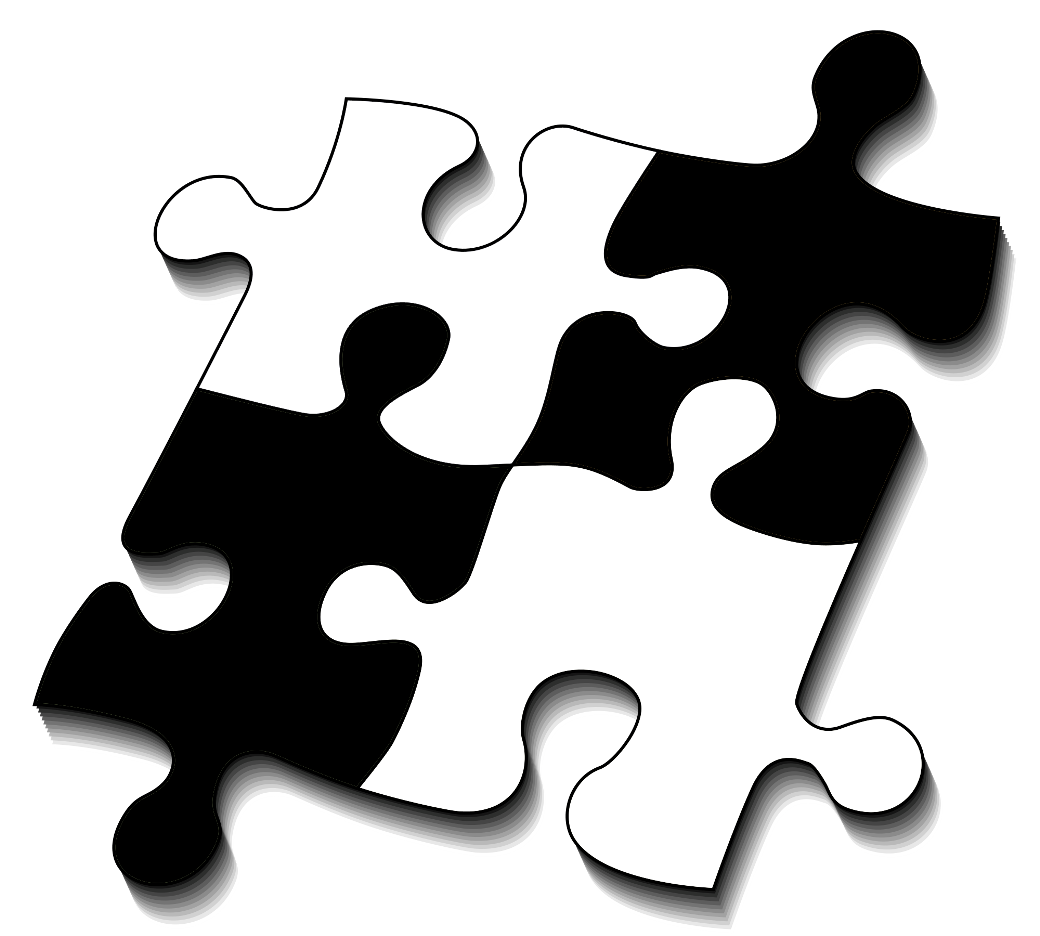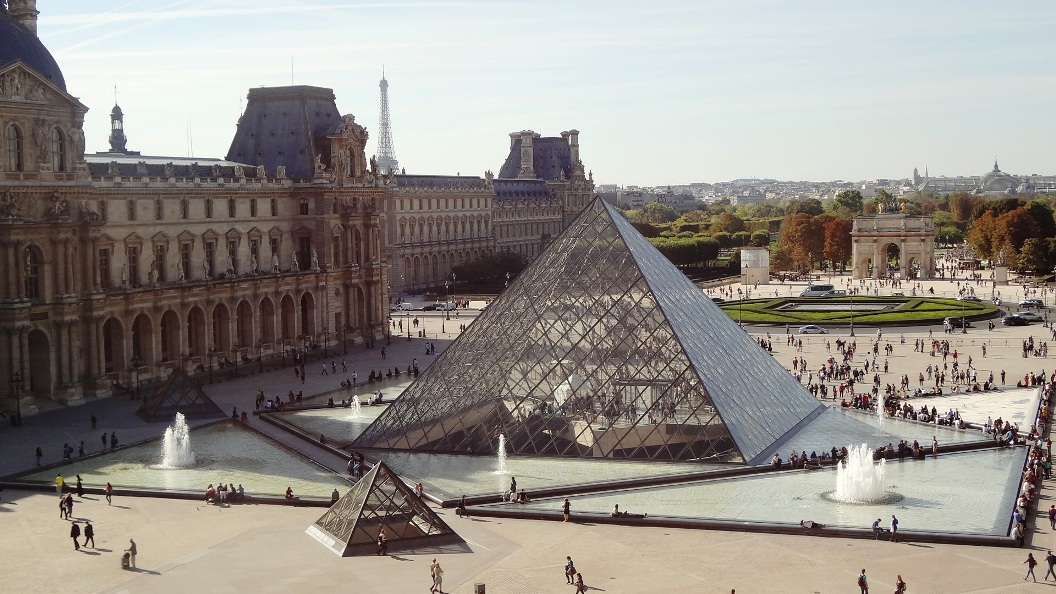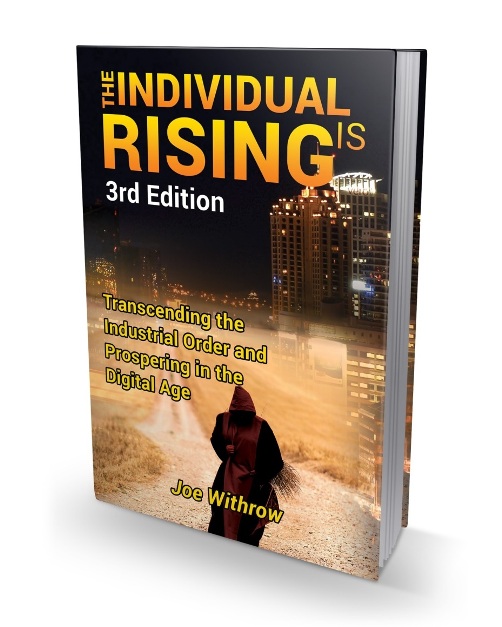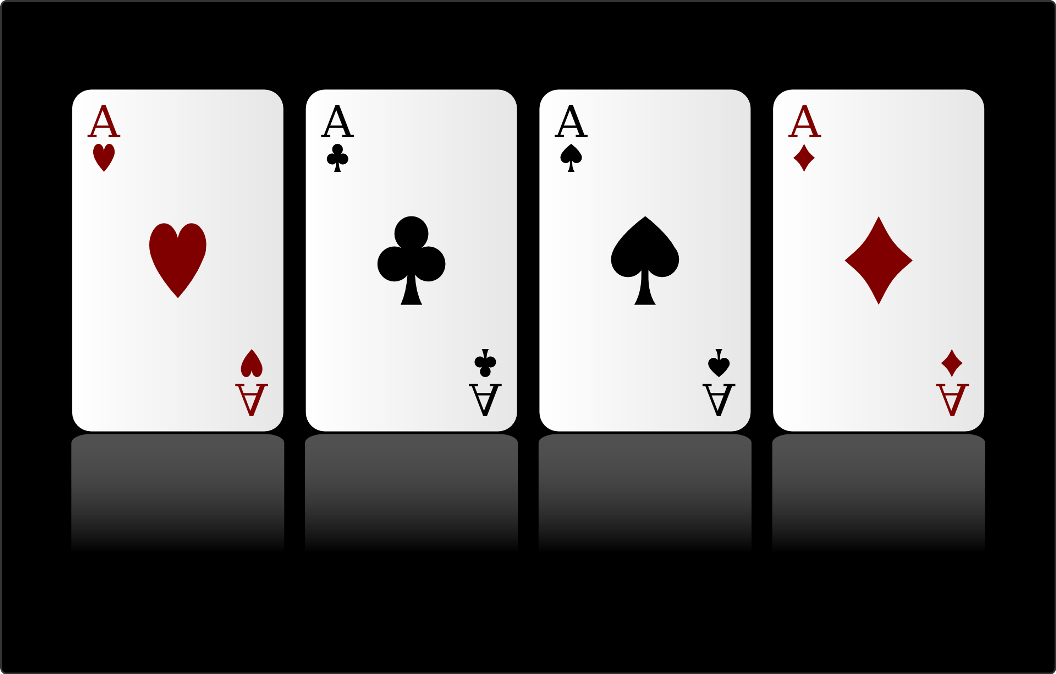By
Joe Withrow
We wait anxiously in our seats as the orchestra finishes tuning, the lights dim and the curtain draws signaling the commencement of Act Two - The Trump Triumphant.
Act One - The Campaign offered an amazing display of political strategy and showmanship! The tried and true hero vs. villain narrative was perfectly established and relentlessly repeated, drawing all of us in. Evidence of Hillary's dirty dealings were constantly paraded for all to see - the Podesta emails, the Clinton Foundation, Benghazi, the paid speeches to Goldman Sachs – much of it delivered directly to the people via Twitter leaving us all to wonder: will a Hillary indictment come?
Our hero stood tall and fearless on television, staring corruption directly in the face. "Remember, the election is rigged...” he warned us, implying the villain would do anything, including cheating, to win.
America was listening.
Middle class citizens all over the country had their pitch forks and torches arrayed and at the ready; enough was enough! Even a portion of working class people on the "left", most of whom enthusiastically supported Obama in the previous two elections, threw their support over to the Trump camp.
The mainstream media made it clear a Trump victory was nigh impossible. But that only succeeded in invigorating supporters and enlisting new recruits. After all, the narrative of America is the ultimate underdog story. If George Washington and the colonists could do it, so can Team Trump!
Yet poll after poll came back with the villain comfortably in the lead. Enthusiasm remained, but hope began to ebb and teeter...then BOOM!
The crescendo was queued and Trump stood victorious against all apparent odds on election night.
Initially stocks sold off and gold skyrocketed on uncertainty as the vote tally came in, but then something very curious happened. As if a testament to the sheer power of our hero's will, the markets completely reversed course in after-hours trading. By the time the financial markets geared up in the U.S. the next day, stocks were in the green and gold was in the red.
It was morning in America.
The opposition paid rabble-rousers to foment unrest in a handful of cities on the coasts, as well as on many college campuses. But by and large Middle America rejoiced. Away went the pitchforks. Away went the torches. Out came the baseball caps - a true symbol of American greatness. Their hero would be the next president of the United States; they had won and all was right in the world! The swamp would be drained, jobs would be returned, and prosperity would be restored. America would be great once again!
Just a masterful display!
We watch enthusiastically as the curtain draws to reveal our hero as he addresses supporters and the nation. First he speaks of the villain: "We owe her a major debt of gratitude for her service to our country.” he informs us. A few timid voices can be heard from the back of the auditorium: Wait a minute... didn't you just say she should be in jail?
Those voices are immediately hushed. Quiet down! It's just political talk, don't you know anything?
Next our hero expresses his gratitude to a number of his high profile advisors: Rudy Giuliani, Chris Christie, Jeff Sessions, Mike Huckabee, Gen. Mike Flynn, Gen. Kellogg, Reince Priebus, the RNC...
To the ire of many, several apprehensive voices can be heard from the back of the room once again. Hold on now. Those are the same old political hacks who have been living high on the hog from the status-quo for decades! I thought you were supposed to drain the swamp... not embrace it!
Once again their voices are immediately hushed. Can it! It's just political maneuvering. He has to play nice to get anything done.
Next our hero proclaims his vision: "We will embark upon a project of national growth and renewal..." This project, we learn, is to be a $1 trillion spending plan for infrastructure. The crowd cheers: It's about time we take care of our country! And think of the jobs!
Those tentative voices just can't help themselves: Wait a minute... that sounds an awful lot like FDR's New Deal. I thought we opposed the New Deal. Not to mention, that's a lot of government spending...which is how the swamp got to be so darn big in the first place. I thought we opposed government spending? I thought we opposed deficits and public debt?
The crowd is getting pretty fed up at this point. Stop being a sissy... just wait until you see how he is going to pay for it! You don't know anything about economics or geo-politics!
As Act Two plays out, our hero continues to announce the people who will serve on his cabinet and staff... more Beltway insiders... more Wall Street insiders... more swamp creatures.
The crowd doesn't care very much... the only thing that really matters is they got "their guy" elected. They can finally "get their licks in" at the annual Christmas party for the first time in eight years. The crowd claims to want the swamp drained, but observation suggests they simply want to be part of the winning team.
Such is the nature of politics; it is a zero-sum game. The crowd understands this perfectly well, but they think the game is "our side" vs. "their side". Left vs. Right... Liberal vs. Conservative... Working Class vs. the Rich... Main Street vs. Wall Street... Our Nation vs. Their Nation.
Those are all false paradigms. The zero-sum game is always Politics vs. Humanity.

It is always Politics vs. Humanity. Always!
Politics proclaims hope and change, yet foments anger and hatred. Politics poisons the mind and pits otherwise good people against one another. Politics is the venom that encourages neighbors to actively hate one another, despite the fact they mostly share the same values, culture, and interests. Politics is the greatest engine of theft, coercion, violence, misinformation, lies, death, and destruction the world has ever seen.
Yet the crowd remains glued to political news programming and faithfully shows up at the ballot box every four years ready to enact political change. They are always trying to get the "right" people into office. They never seem to understand the things they wish to change have very little to do with the people in office, and everything to do with the structure of coercive government. Without the structure of institutionalized force, coercion, theft, and violence, it would not matter much who claimed to be the ruler.
This has been going on for hundreds of years now, ever since "representative democracy" convinced people they themselves own their government and that politics is all about civil service. Prior to this, people understood that they were "subjects" to their government, not "citizens", and they did their very best to avoid it whenever possible. That's why the tax collector was once the most reviled of professions.
Here's the thing: even if the crowd understood they were "subjects" to the structure claiming dominion over them, there is very little they could do to change it. You don't get to vote for the structure or even for the fundamental components comprising the structure; you only get to vote for a public overseer. That is the great democratic deceit - the illusion of governmental ownership and control by “We the People”.
The crowd will continue to be preyed upon for as long as they fail to recognize this. But that doesn't mean you have to be a victim.
The world has undergone a massive change over the past several decades – the type of change from which there is no return. This change has been the transition from the Industrial Age to the Information Age; a transition still in its infancy.
The Industrial Revolution, which began in the mid-to-late 18th century, has lifted more than a billion people from the shackles of poverty, raised standards of living exponentially and created the world in which we live today. In the developed world, even people of the most modest means enjoy far more comforts and luxuries than the wealthiest kings and nobles of the pre-industrial era.
Commerce was the driving force behind industrialism and the market system was spawned from enterprise and trade. But for all of its revolutionary and wealth-creating qualities, the Industrial Age carried one major limitation; it required highly rigid centralization.
Centralized institutions require a certain degree of administrative bureaucracy in order to function. This applies to corporations just as it applies to governments, and it is why corporate organizational structures fundamentally resemble government hierarchies.
All of these institutions employ pyramidal hierarchical structures: there are a few people at the top who send orders down to the people comprising the chain below them who pass those orders on down the hierarchy. Each successive chain is progressively larger as you work your way down the organizational chart.

Old or new, all legacy institutions employ failing pyramidal hierarchical structures.
The problem with bureaucracies is that they are slow, inefficient, and carry conflicting incentives and disincentives across the various chains of authority. These problems become magnified as the bureaucracy grows, and the one consistent incentive present in all bureaucracies is the desire to expand. As an institution grows, its focus becomes less on innovation or wealth-creation, and more on suppressing competition.
This is why the very institutions responsible for empowering individuals and enriching civilization on a mass scale always seem to stagnate and become parasitic over time.
So many institutional systems of the Industrial Age began (and I paint with a broad brush here) as liberators and innovators. These systems grew to encompass most of the globe, and they came to be thought of as permanent. For many, perhaps they still are.
Francis Fukuyama penned an essay back in 1989 titled The End of History? which suggested that humanity may have reached the end of its socio-cultural evolution with the collapse of the Soviet Union. Francis made a number of good points in his essay, and overall it made perfect sense at the height of the Industrial Age.
But God has a sense of humor and the Universe is unequivocally characterized by change and paradox. The Information Age was beginning its ascent precisely as Mr. Fukuyama was proclaiming the supreme permanency of western regulatory democracy and its established institutional systems. Little did the Establishment know that a new disrupting force was rising from the ether.
In fact, Timothy C. May had already penned and presented his powerful manifesto a year earlier at the Crypto 88 conference. History may very well point to Mr. May’s manifesto as the definitive beginning to the Information Age. Here’s May:
A specter is haunting the modern world… Computer technology is on the verge of providing the ability for individuals and groups to communicate and interact with each other in a totally anonymous manner. Two persons may exchange messages, conduct business, and negotiate electronic contracts without ever knowing the True Name, or legal identity, of the other…
Reputations will be of central importance, far more important in dealings than even the credit ratings of today. These developments will alter completely the nature of government regulation, the ability to tax and control economic interactions, the ability to keep information secret, and will even alter the nature of trust and reputation…
Just as the technology of printing altered and reduced the power of medieval guilds and the social power structure, so too will cryptologic methods fundamentally alter the nature of corporations and of government interference in economic transactions…
That day has arrived; we are living in the early stages of the Information Age. Most people may not know this yet, but they can feel it.
The institutional foundation of the industrial world is crumbling around us. Governments are bankrupt. Social welfare program costs are growing exponentially. Unions are broke. Pension plans are severely underfunded. National currencies have been trashed. Blue-collar jobs in the developed world have been lost to low-wage countries. Low-wage jobs have been lost to robotics and automation. Many of the jobs just disappeared entirely. Everyone's retirement account is propped up by the constant creation of money out of thin air required to keep the financial markets afloat.
Welcome to the Information Age!

The Information Age is still in its infancy.
In truth, these are all great things. The seeds of a second Renaissance for human civilization have already been sown. These seeds will blossom as civilization continues to move away from the Industrial Age model and its centralized dominant/submissive paradigm.
Think about it this way: technology is conquering scarcity and reducing the need for centralization.
It required 40% of the U.S. population to work in agriculture in order to produce enough food to meet demand in the year 1900. Today that number is around 2%, and food is more available than ever before. You can find milk, eggs, meat, fresh fruits, vegetables, and all kinds of other items at your local grocery store year-round. This has enabled people to focus their time, energy, and labor on more advanced endeavors which in turn has led to an explosion of technological innovation.
As a result of this drastic reduction in scarcity, the average person today is far wealthier in standard of living terms than the wealthiest people alive one hundred years ago. Take a few minutes to walk around your house and catalogue your furniture, appliances, electronics, gadgets, widgets, and stuff. Most of what you take for granted every single day was not available to your forefathers a mere one hundred years ago.
Here's the point: the world is not going to hell in a hand basket; the institutionalized industrial model is.
I don't know whether or not the centralized structure of coercive government was a necessary evil on the way to building an advanced civilization, but I do know this: politics is 100% obsolete in this digital age we now find ourselves in. We are living with space-age technology, yet we still employ the structure of bronze-age rulership by means of force, coercion, theft, misinformation, and violence on a mass scale.
We have been conditioned by this model to view ourselves as a victim always in need of a savior. Yet we humans are engines of creation. We can imagine and envision, then turn our imaginations and visions into reality. I mean that quite literally. It is just a choice. We are astonishingly capable beings, but we have been conditioned to focus on manifesting conflict and negativity.
This is why I am so saddened when I see politics, and the dark forces behind it, trick wonderful people into spending all of their time, energy, and thoughts on political abstractions. I see this every day in my own life. I see people whom I love and respect get sucked into the political game; I see them elevate politics to religious levels and willfully ignore those things that are most important in their own life. I watch as the twinkle vanishes from their eye, the pep disappears from their step, and the anger slowly poisons their psyche.
And I understand. I was there myself not too long ago.
As best I can tell, western civilization is a tale of two cities at the current point in time.
The people in one city are confused and angry because they do not understand why their industrial institutions are failing them. The 2016 U.S. election cycle made it obvious the people living in this city reside on both the "left" and the "right" side of the modern political spectrum. They know it’s broke and they want it fixed no matter what it takes, and no matter whose rights are trampled to do so. They are looking for a hero, and they see politics as the solution.
The people in the other city are much less concerned about the devolving industrial model because they are leveraging the budding trends of the Information Age in their favor. These are the people learning how to operate in the digital economy that bypasses industrial borders. They are learning there's a whole lot more to the money story than what they were led to believe.
They are learning how to build collaborative networks utilizing digital technology and secure communications. They are actively creating superior alternatives to literally every civil service function currently provided by industrial institutions. They see politics as the problem, and they see decentralized networks as the solution.
I lived in that first city several years ago. I was angry and depressed all the time. I thought the answer was to fight the trends; fight the world. I was stressed to the max, and terribly unpleasant to be around...just ask my wife.
When I eventually got tired of being angry and depressed my mind switched gears, and I moved to the second city. It's much more pleasant here, and the people are friendlier. The people in this city aren't trying to change the world - that's a win-lose proposition. Instead, they are building an alternative world based upon participatory networks and voluntary association utilizing modern technology.
Never before has this been possible in recorded human history.
While the crowd is focused on fighting the existing status-quo on the macro scale, a growing number of individuals are focused on building a better model on the micro scale. The new model is not fixated upon enacting "social change", it is geared towards empowering individuals. In fact, it's not much of a model at all in the traditional sense. It is not about replacing the old structure with a new one. Instead, the new model is a perspective paired with an understanding of the economic trends, digital technologies, and financial tools necessary to build a life of freedom, wealth, and fulfillment to the fullest extent possible.
This is the theme of the third edition of my book titled The Individual is Rising: Transcending the Industrial Order and Prospering in the Digital Age.

The book is available in both paperback and Kindle format on Amazon. But at the moment I’m not terribly interested in selling copies as much as I am in distributing copies. Anyone interested can pick up a digital copy absolutely free at http://theindividualisrising.com/.
If you are tired of politics and its associated corruption, this book is for you. You see, in every developed industrial country there is a glass ceiling of-sorts over the middle class. When you add up all of the taxes across all levels of government, the middle class pays at least half of their income to their governments each year.
In addition to taxes, the middle class is also subjected to the whims of their rulers almost entirely. They just don't have any other options - they are stuck. And truthfully very few in the middle class even think about it. After all, the rat-race consumes the bulk of their time and energy.
But what if you don't want to participate in any of their political programs? What do you do when you just want to be left alone to experience this life in a meaningful way, but politics and its supporters are hell-bent on forcing you to play their games and participate in their schemes? What do you do when the moral busybodies are determined to keep you corralled within their systems of taxation and surveillance? What do you do when your logic is met with anger and condemnation?
Historically, the answer has been to fight; to use force - politically or even physically - as a means of instituting change. This is a losing proposition, and it is completely unnecessary in the digital age.
In the old days, the dreamers, visionaries, philosophers, and wayfaring souls were forced to meet secretly in the back rooms of taverns, inns, and speak-easies to discuss their radical ideas. Today, they can all connect with one another to share information and ideas instantaneously on the Internet, in total privacy thanks to encryption technology, from the comforts of their own home.
What this means is individuals can create their own future independently; they no longer need to fight to reform society in accordance with their own ideals and preferences. As systems theorist Buckminster Fuller pointed out, fighting the System only strengthens it. Here's Bucky:
“You never change things by fighting the existing reality. To change something, build a new model that makes the existing model obsolete.”
For perhaps the first time in history, the Information Age and its digital economy are enabling individuals to build and experiment with new models on a global scale in relative peace and freedom. I don't think the significance of this is well-understood or appreciated as of yet.
This dynamic is unprecedented and absolutely revolutionary. And it is irreversible. The rulers can certainly build censorship and misinformation into popular social media sites, search engines, and top-level domains, and I suspect they will. But they cannot censor or shut down distributed networks designed to decentralize the Internet and all of its applications by bypassing third parties entirely.
The rabbit is out of the hat, and it won't be going back in. It is the Guttenberg Press all over again, except on a much greater scale. Fundamentally, the encryption technology driving decentralization is just a branch of mathematics. No matter how much legislation is passed, and no matter how many guns are drawn, the rulers cannot alter mathematics. 2 + 2 will always equal 4.
This presents the disenfranchised individual with a unique opportunity.
Most aspects of our society are digital today. Information is digital. Communication is digital. Vital records are digital. Money is digital. Wealth is digital. Transactions are digital.
I don't think this dynamic is well understood, nor do I think it is particularly welcomed by those of us who came up according to the rules of the Industrial Age. But those who understand the trends and the available technology can organize their affairs to bypass the abusive structure to the fullest extent possible to enhance their quality of life. Further, they can build alternative networks geared towards any desired purpose; they can construct better alternatives to the existing model which is based on centralization, hierarchy, monopoly, coercion, and political power.
Now this doesn't reduce the need for basic resiliency - food, water, shelter, and gold... but those are chaos hedges. My experience is that a fixation upon chaos hedges tends to foster an unpleasant and rather defeatist perspective. I am not sure that fulfillment can ever come to those with a defeatist mindset. Simply, a focus on negativity necessarily crowds out the inner genius capable of building a custom-tailored life.
Einstein once mused: "I think the most important question facing humanity is, 'Is the universe a friendly place?'."
If we come to the conclusion that the answer to Einstein's question is no, then we are doomed to a Hobbesian life of scarcity, struggle, and subservience. But if we decide the answer is yes, then a whole new world of opportunity opens up to us. As to what, specifically, that opportunity is - that is up to you.
It's all just a choice...
Joe
http://theindividualisrising.com/
A better hand awaits those who choose not to play a rigged game.

